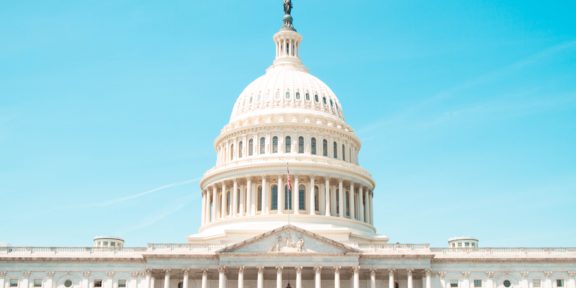With what many government employees are calling “D-Day” less than a week away, some are making drastic changes in hopes that they can financially weather the coming storm.
Recent talks amongst House members about shutting down the government have many federal employees in turmoil, especially those who only make enough to support themselves.
According to the Washington Post, Majority Leader Rep. Eric Cantor of Virginia said, “Time is up, and it is up to the Democrats controlling the White House and the Senate to offer significant spending cuts as part of legislation to fund the government for the rest of the budget year.”
Lanaye Cambridge, a single woman, federal employee and resident of SE Washington, is worried about the looming government shutdown. “I have spent the last few weeks looking for a part-time job because if they shut us down, the electric, gas and mortgage companies will still be hard at work and will still need to be paid on time.”
On April 8, the current short-term federal funding will run out and would cause a partial shutdown of every government agency, excluding essential workers as reported by the Washington Post.
“I have contacted my mortgage company to try and get a loan modification and lowered the features on my cell to try and prepare to be without a job for awhile, but it’s really not that much preparing we can do, so I’m hoping it doesn’t happen because I have nothing to fall back on,” Cambridge said.
According to the latest Congressional Research Service Report, six shutdowns occurred between fiscal years 1977 and 1980, ranging from eight to 17 full days, according to the report. From fiscal 1981 to 1995, nine shutdowns occurred, lasting no longer than three full days. In fiscal 1996, the first budget impasse led to a five-day shutdown from Nov. 13-19, 1995. The second shutdown, the longest in U.S. history, stretched 21 days from Dec. 15, 1995 to Jan. 6, 1995.
The report also stated that the first Clinton-era government shutdown led to the furlough of about 800,000 federal employees and the second shutdown furloughed about 284,000 federal employees.
Although historically federal employees affected by shutdowns have received their salaries retroactively, Cambridge says, “Getting your money at a later date may not help much when the bills are past due, and there is no guarantee that you will be able to catch up.”
The Congressional Research Service Report also provides a list of effects that previous government shutdowns have had on the public and they include, health, because new patients were not accepted for clinical research at the National Institutes of Health (NIH), Law Enforcement and public safety due to delays in criminal processing as well as the parks, museums and monuments because 368 National Park Service sites were closed.
“Hopefully I can find a part time position to sustain me if we get shut down, but the bad part is the people making these decisions don’t suffer, just those of us who desperately need our jobs do,” Cambridge said.






